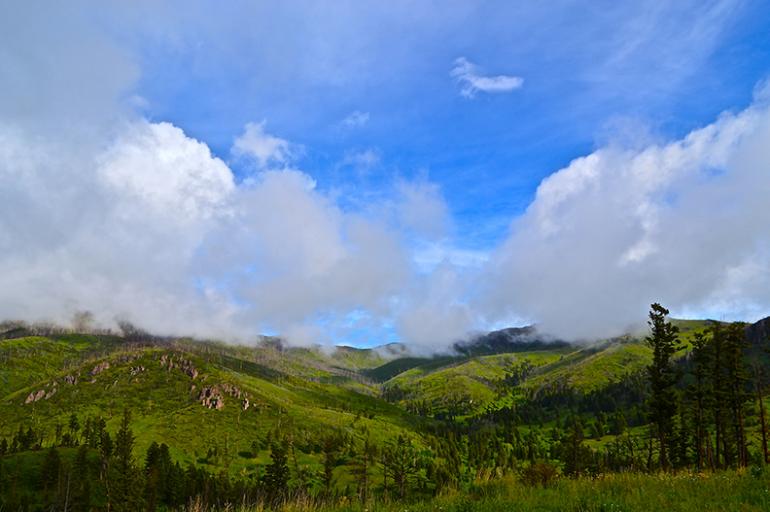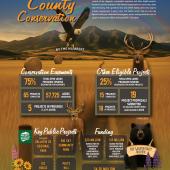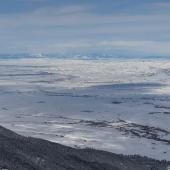Unfunded
Funding for wildlife and conservation sucked into black hole.
At midnight on September 30, the authorization for one of America’s most important and popular conservation programs expired. The Land and Water Conservation Fund (LWCF) has been used over the past 50 years to invest $16 billion into projects that benefit sportsmen, including the acquisition of public fishing areas, important wildlife habitat, and blocks of land now open for hunting and fishing. Thousands of sportsmen and women have worked tirelessly over the past several years to convince lawmakers to reauthorize the fund, and legislation enjoying strong bipartisan support has been proposed in both the House and Senate. LWCF authorization bills would likely pass through both chambers of Congress, if the bills could only get a vote.
While the continued dysfunction of Congress is more than disappointing, we should not view this passing deadline as "game over" for this critical conservation funding program. Though new funds have stopped rolling into the account, the LWCF hasn’t been eliminated, and there is still time to reauthorize the fund in a way that doesn’t affect the way it works.
If that sounds confusing, let me explain: the original authorization for the Land and Water Conservation Fund linked the program to a trust account that grew by $900 million annually from funds generated primarily through oil and gas drilling on the Outer Continental Shelf. This system creates balance—we reinvest in the environment using funds from an activity that does environmental damage.
But, despite $900 million being allocated toward the trust fund each year, the fund is considered discretionary spending, and LWCF dollars must be appropriated annually by Congress, which has only done so twice for the full $900 million. Dollars that previously went unappropriated have remained in the trust all this time. These remaining unused dollars can still be used to fund LWCF projects until the trust funds are exhausted.
So, we do have a cushion to keep the fund working on great public access projects while we convince Congress to pass a clean reauthorization—and we think that’s likely to happen. But with the fund disconnected from its source of funding, we are living on borrowed time before the money runs out and the long-term future of a great habitat and access program is in jeopardy.
An opportunity to reauthorize the program could come with a bipartisan budget deal. Right now, the federal government is only being funded through a short-term continuing resolution that expires on December 11. A new budget will need to be passed for the remainder of the 2016 fiscal year by that point, and we’re calling on all members of Congress to roll up their sleeves and work out a bipartisan budget deal that doesn’t shortchange conservation. You see, in the last 37 years, funding for conservation as a percentage of the federal budget has been cut in half. Right now, only one percent of the money you pay in taxes goes toward conservation. This is the money that pays for habitat protection and improvement on Forest Service land, National Wildlife Refuges, Bureau of Land Management acres, and private lands enrolled in Natural Resources Conservation Service programs.
Investments in conservation didn’t create our budget deficit and cutting investments in conservation won’t fix our budget deficit. In fact, cutting conservation would likely increase our annual budget deficit, because federal investments in conservation have a great return on investment. That one percent of the federal budget that funds our national forests, wildlife refuges, and parks generates $646 billion in annual consumer spending on outdoor recreation. That’s more than the entire country spends on gas or pharmaceuticals.
So take five minutes to contact your members of Congress. Tell them to stock conservation’s freezer with red meat: a budget deal that invests in fish, wildlife, public access, and your best days afield. Tell them reauthorization of the Land and Water Conservation Fund should be a part of that deal, too. Remind your lawmakers of the dividends: your green going to the outfitters, retailers, gas stations, hotels, corner diners, and all the other American businesses that are a part of your hunting and fishing experiences. Your future seasons depend on it.
Joel Webster is the Montana-based director of the Center for Western Lands at the Theodore Roosevelt Conservation Partnership.











